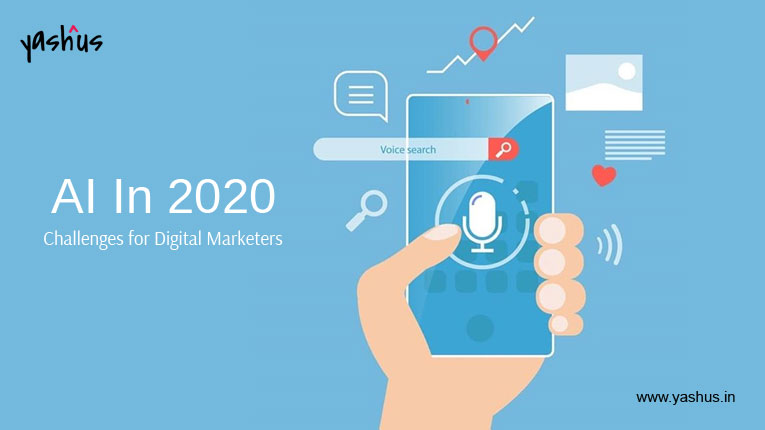
AI in 2020: Challenges for Digital Marketers
The world is always evolving rapidly. Technologies that we used to consider as science fiction are real now, and we can look forward to more significant advancements soon.
Artificial intelligence is one such technology that once regarded as impossible. Currently, most companies are using AI automated processing in various sectors of the value chain, starting from manufacturing to marketing to improve efficiency and speed. AI in 2020 has brought new challenges for digital marketers.
Role of AI in Digital Marketing
New AI bots have a point system, which allows automated buyer behavior prediction. Most digital marketing companies use this concept to create ads, showcase products and modify the website to attract customers into becoming loyal consumers. They are continually analyzing user data through the AI system to predict our future needs. This technological trend can define the future of AI in Digital Marketing. Have you ever wondered how you get ads based on what you have surfed on the internet? This customized service is the work of artificial intelligence.
AI Challenges for Digital Marketers In The Future
Currently, AI technology is in a developmental stage. Only a few experts can create innovative AI platforms to establish a trend. Many experts in the AI community think it may create an uneven field for digital marketers. Here are some of the challenges AI may pose for digital marketers in the future.
1) Continuously Changing AI Trends
The AI trend is changing rapidly, and smart coders and digital marketers drive this continuous change in the AI sector. Currently, there is a huge shortage of these talented people. Thus, only those who are ready to spend a massive chunk of money in hiring experts and buying infrastructure for implementing AI will own the pedestal in the market.
2) Deficiency Of High-Quality Data
The small digital marketing companies don’t have a high-quality data set that they can use for the training of AI systems. Compared to the big organizations, it put them in a disadvantageous position. Without high-quality data, any automated AI process is almost useless.
3) AI Demands High Investment
AI in the Digital Marketing industry requires big investment upfront. It poses a big challenge for small digital marketing companies. This outsourcing trend also has reduced the staffing of the digital marketing in-house team, which has made an enormous shift in the labour market.
4) Ethical Concerns
The way AI technology is evolving, there is no doubt that it will play a significant role in various industries, including the digital marketing industry. AI technology not only raises technical challenges, but it has raised many ethical concerns too. These concerns are as follows.
5) Job Loses
Compared to a human, AI is very efficient in analyzing big data set. It may heavily reduce the job count in the digital marketing services sector. As mentioned, the use of a machine instead of humans is causing a massive shift in the labor market.
6) Potential Risks Associated With AI
AI can analyze user behavior and adapt itself to influence the user. In the wrong hand, it may deliver detrimental results. How a company uses AI is another factor. There are no strict regulations on this front, until date. Thus, the risks of using AI digital marketing elements to one’s benefit are higher.
7) Invasion of Privacy
The congregation of high-quality data from the user without violating their privacy is also another ethical concern for the AI industry. While there are numerous regulations to the data collection, usage, and others, the demand for data is also increasing. It has led to illegal parties selling stolen customer data to major companies.
Conclusion
The year 2020 can be a defining year for AI technology in the digital marketing sector. Big tech giants like Google and Facebook are already using AI-driven algorithms to understand user behavior. They have also open-sourced many applications and patents to digital marketers. In 2020, smart digital marketers have the opportunity to learn from these applications and patents. So they can reach the end customer with less effort. Those who learn to adapt will stay in the market.



